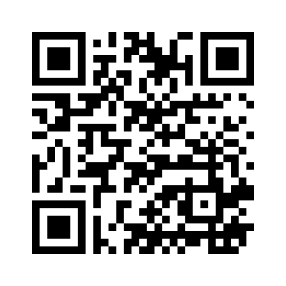Have you ever experienced a dream so vivid that it seemed to predict the future? These uncanny events, often described as precognitive dreams or dreams that come true, blur the line between coincidence and foresight. For centuries, people have wondered whether such visions are mystical prophecies, clever work of the subconscious mind, or simply random chance.
Want to track your own dream meanings and uncover recurring subconscious patterns? Try Dreamly — your AI-powered dream journal on Android and iOS.
Why Do We Dream of Things That Later Happen?
Across cultures, precognitive dreams have fascinated people for centuries. From a psychological perspective, they may emerge from the brain’s ability to detect subtle cues, store forgotten information, and simulate possible futures. For example, if you dream about meeting an old friend and they unexpectedly call the next day, your mind may have picked up hidden signals rather than producing a supernatural prophecy.
Spiritually, however, many traditions interpret such dreams as intuitive insight or even glimpses of fate. Consequently, whether you view them through the lens of science or mysticism, they reveal the extraordinary depth of dream psychology.
Myth, Coincidence, or Reality?
Myth: Dreams are literal prophecies. Ancient cultures often saw them as divine messages, yet modern research shows no consistent evidence for supernatural prediction.
Coincidence: Because we dream thousands of times each year, some dreams will naturally align with real-life events. This statistical inevitability explains many so-called dreams that come true.
Reality: In many cases, dreams reflect unconscious pattern recognition. The brain processes information and translates it into symbolic stories. Later, when events unfold in similar ways, the dream feels predictive rather than coincidental.
Psychological Explanations in Dream Psychology
According to experts in dream interpretation, precognitive dreams often function as advanced pattern recognition. Your subconscious might notice tiny details—such as stress in a partner’s voice, changes at work, or repeated media exposure—and weave them into dream imagery. When reality later confirms the scenario, it seems prophetic. Moreover, this effect can sometimes be amplified by the so-called self-fulfilling prophecy, where your behavior unconsciously nudges events toward the outcome imagined in the dream.
Examples & Common Variations
Dreaming of someone before they contact you: May reveal intuition about timing or reflect subconscious reminders of them.
Dreaming of accidents or illness: Can arise from unnoticed physical cues or subtle concerns that surface symbolically.
Dreaming of world events: Often mixes daily news exposure with symbolic narratives, which later appear eerily predictive.
When to Take Precognitive Dreams Seriously
Of course, not every dream is predictive. Nevertheless, some carry powerful emotional truth. If a dream urges you to reconnect with someone, adjust unhealthy habits, or prepare for challenges, it may deserve attention. Even when not prophetic, dreams can serve as mirrors of your subconscious priorities.

What Science Says About Precognitive Dreams
Scientific studies of dreams that come true remain inconclusive. Most researchers attribute them to confirmation bias—we remember the hits but forget the misses— and to retrospective interpretation, where people reshape the dream to fit later events. Nevertheless, the psychological impact is undeniable. These dreams can inspire creativity, sharpen awareness, and even deepen trust in personal intuition.
How Dreamly Helps Track Precognitive Dream Meaning
By recording and tagging dreams every day, you can distinguish coincidence from genuine recurring patterns. In addition, Dreamly’s AI highlights symbols—such as repeated themes of contact, health, or travel— enabling you to explore whether your precognitive dreams represent subconscious insight or creative reflections.
Conclusion: Dreams That Seem to Come True
Ultimately, dreams that appear prophetic are not always mystical. More often, they demonstrate the subconscious mind’s remarkable ability to anticipate outcomes and highlight hidden truths. Whether you consider them signs of fate, intuitive messages, or pure coincidence, they remind us that dream interpretation can be a powerful tool for self-awareness.
Curious if your dreams carry hidden meaning? Start Dreamly on Android or iOS.







